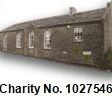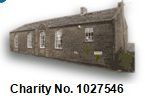| Area or People at Risk | Risk Identified | Actions Taken to Mitigate Risk | Notes | |||
| Staff, contractors and volunteers What work activity or situations might cause transmission of the virus and likelihood staff could be exposed. | Cleaning surfaces infected by people carrying the virus. Disposing of rubbish containing tissues and cleaning cloths. Deep cleaning premises if someone falls ill with CV-19 on the premises. Occasional Maintenance workers. | Stay at home guidance if unwell at entrance and in Main Hall. Staff (cleaner) provided with protective apron and plastic gloves. Contractors provide their own. Staff/volunteers advised to wash outer clothes after cleaning duties. Staff given PHE guidance and PPE for use in the event deep cleaning is required. | Staff/volunteers given guidance as to cleaning. E.g. cloths should be used on light switches and electrical appliances rather than spray disinfectants. Rubberised and glued surfaces can become damaged by use of spray disinfectant too frequently. | |||
| Staff, contractors and volunteers– who could be at risk and likelihood staff/volunteers could be exposed. | Staff/volunteers who are either extremely vulnerable or over 70. Staff or volunteers carrying out cleaning, caretaking or internal maintenance tasks could be exposed if a person carrying the virus has entered the premises or falls ill. Mental stress from handling the new situation. | Stay at home guidance if unwell at entrance and in Main Hall. Staff (cleaner) provided with protective apron and plastic gloves. Contractors provide their own. Staff/volunteers advised to wash outer clothes after cleaning duties. Staff given PHE guidance and PPE for use in the event deep cleaning is required. | Staff and volunteers will need to be warned immediately if someone is tested positive for COVID-19 who has been on the premises. Details of a person’s medical condition must be kept confidential, unless the employee/volunteer agrees it can be shared. It is important people know they can raise concerns. | |||
| Car Park / paths/ exterior areas | Social distancing is not observed as people congregate before entering premises. Parking area is too congested to allow social distancing. People drop tissues. | Cleaner asked to check area outside doors for rubbish which might be contaminated, e.g. tissues. Wear plastic gloves and remove. | Transitory lapses in social distancing in outside areas are less risky, the main risk is likely to be where people congregate or for vulnerable people. Ordinary litter collection arrangements can remain in place. Provide plastic gloves. | |||
| Entrance hall/ stairs/corridors | Possible “pinch points” and busy areas where risk is that social distancing is not observed in a confined area. Door handles, light switches in frequent use. | Identify “pinch points” and busy areas. Provide signage. Door handles and light switches to be cleaned regularly.Hand sanitiser to be provided by hall. | Hand sanitiser needs to be checked frequently. Empty bins regularly. | |||
| Main Hall | Door handles, light switches, window catches, tables, chair backs and arms. Soft furnishings which cannot be readily cleaned between use e.g. Projection equipment / window curtains. Social distancing to be observed. | Door handles, light switches, window catches, tables, chairs and other equipment used to be cleaned by hirers before use and weekly by hall cleaning staff. Window curtains removed. Social distancing guidance to be observed by hirers in arranging their activities. Hirers to be encouraged to wash hands regularly. | Provide hand sanitiser. | |||
| Kitchen | Social distancing more difficult. Door and window handles, light switches, work surfaces, sinks, cupboard/drawer handles, fridge/freezer, crockery/cutlery. Kettle/hot water boiler. Cooker/Microwave. | Hirers are asked to control numbers using kitchen so as to ensure social distancing, especially for those over 70. Hirers to clean all areas likely to be used before use, wash, dry and stow crockery and cutlery after use. Hirers to bring own tea towels.Hand sanitiser, soap and paper towels to be provided. Consider encouraging hirers to bring their own Food and Drink for the time being. | Cleaning materials to be made available in clearly identified location, regularly checked and re-stocked as necessary. Access to kitchen restricted to one person at a time. | |||
| Store cupboards (cleaner) | Social distancing not possible. Door handles, light switch. | Public access unlikely to be required. Cleaner to decide frequency of cleaning. | ||||
| Storage rooms (furniture/equipment) | Social distancing more difficult. Door handles in use. Equipment needing to be moved not normally in use. | Hirer to clean equipment required before use. Hirer to control accessing and stowing equipment to encourage social distancing. | Cupboards recently re-arranged to allow ease of access. | |||
| Indoor Toilets | Social distancing difficult. Surfaces in frequent use = door handles, light switches, basins, toilet handles, seats etc. Baby changing and mirrors. | Hirer to control numbers accessing toilets at one time, with attention to more vulnerable users. Hirer to clean all surfaces etc before public arrive. Engaged / vacant signage provided. | Ensure soap, paper towels, tissues and toilet paper are regularly replenished. | |||
| Stage | Curtains, Social distancing, Lighting and sound controls | Consider tying back stage curtains out of reach if hirers are likely to touch them. Hirer to control access and clean as required. |

